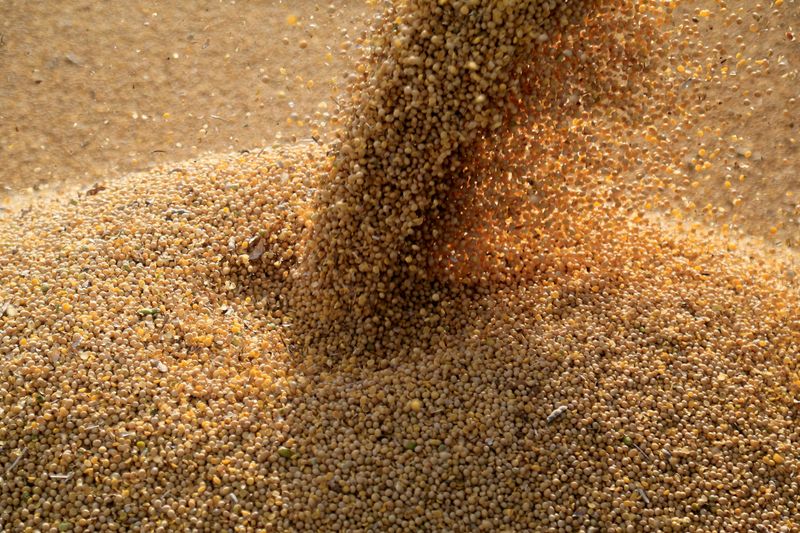By Karl Plume and Arunima Kumar
(Reuters) -Bunge Ltd reported a stronger-than-expected 17.1% jump in adjusted quarterly profit on Wednesday as large oilseed crops in North America and Europe and strong demand for processed meal and oil bolstered its core agribusiness unit.
That strength would carry into 2022, the global farm commodities trader forecast, amid rising demand for food and biofuel and tightening crop supplies, although the segment would likely not match last year's record performance.
Shares firmed about 1% in early trading.
"We're carrying some good momentum in from Q4," said Chief Executive Gregory Heckman. "While we don't see Q1 being quite as strong as last year, which was really extraordinary, we are off to a very good start."
Bunge (NYSE:BG)'s results offered the latest look into how multinational grain companies have weathered shifts in demand and supply chain disruptions caused by the COVID-19 pandemic.
Bunge and rival agribusinesses are now benefiting from improving demand for food and renewable fuel as some pandemic restrictions are easing.
Traders, however, are facing higher raw materials costs as crop prices have surged due to a South American harvest shortfall, while energy costs hover near multi-year highs.
Forecasters have been slashing harvest estimates for Brazil, the world's top soy exporter and major corn supplier, due to adverse weather. Drought in Argentina has reduced harvest prospects there.
Bunge expects 2022 adjusted earnings of at least $9.50 per share, which the company said would be the second-highest in the its recent history.
The company posted adjusted net income of $533 million, or $3.49 per share, in the quarter ended Dec. 31, compared with $455 million or $3.05 per share, a year earlier.

That topped a consensus analyst estimate of $2.87 per share, Refinitiv Eikon data showed.
Revenue totaled $16.683 billion, up from $12.61 billion a year earlier and above an analyst estimate of $15.167 billion.